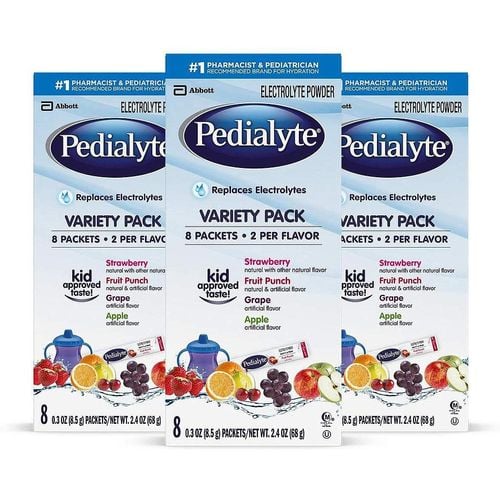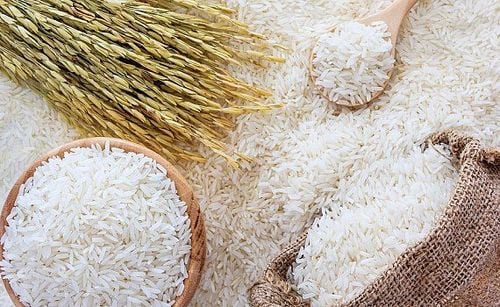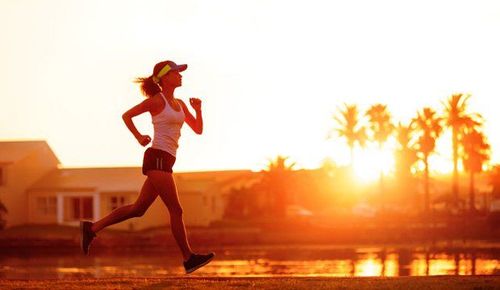This is an automatically translated article.
Thorough preparation is the key to success for athletes of any caliber. Proper fueling before a run minimizes fatigue and speeds recovery. On the other hand, fueling up from certain foods or not fueling before a run can cause stomach cramps or lead to a sharp drop in energy levels.1. Meal before running
Fueling three to four hours before a run is very important, especially for long-distance runners. Long distances are available as 10km (6.2 miles), half marathon (21 km or 13.1 miles) and marathon (42km or 26.2 miles). A pre-run snack is often less important for runners for less than 60 to 90 minutes.
Pre-run meals serve two purposes. One is to keep the body from feeling hungry before and during the run, and the second is to maintain optimal blood sugar levels for the muscles during exercise. Meals should be high in carbs, medium in protein, and low in nutrients that slow digestion like fat and fiber. Also drinking 17 to 20 ounces (500 to 590 ml) with a pre-run meal is necessary to keep the body hydrated.
Here are some examples of servings before a run:
Five egg whites and one egg with two pieces of white toast with jelly and a banana. One cup (225 grams) low-fat cottage cheese with one cup (150 grams) of blueberries, add two slices of toasted white bread with a tablespoon of honey. A medium white bagel with two slices of turkey and mustard (optional), plus 30 grapes. One medium baked potato with sour cream and 3 ounces (85 grams) of grilled chicken breast. One cup (200 grams) of cooked pasta with 1/2 cup (130 grams) of marinara sauce with 3 ounces (85 grams) of chicken breast and a slice of avocado toast.
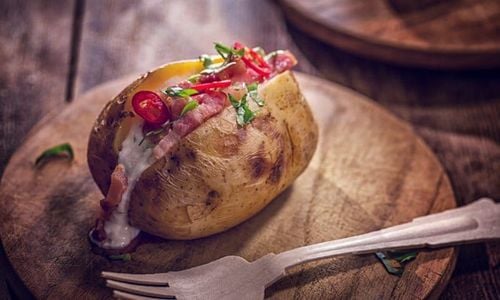
Người tập luyện có thể sử dụng một củ khoai tây nướng cỡ vừa trước khi chạy
Foods to avoid before running:
High-fat foods: Creamy sauces and sauces, fried foods or foods prepared with a lot of butter or oil. High-fiber foods: Whole grains are high in fiber, beans, and cruciferous vegetables like broccoli and cauliflower.
2. Snack food
A pre-run snack should be consumed 30 to 60 minutes in advance to provide the body with adequate fuel.
A pre-run snack consists mainly of carbs and is much lower in calories than a pre-run meal. In many cases, certain snack foods are a better choice than a full meal because exercising with too much food in the stomach can lead to indigestion, nausea, and vomiting.
Pre-run snacks include:
A piece of fruit, such as a banana or orange Half a sports energy bar Half a muffin with honey or jelly 15 cookies Half a cup of dry cereal In addition to a pre-run snack, clients should drink 5 to 10 ounces (150 to 295 ml) of water to stay hydrated while limiting fat and fiber. Many people may also want to avoid dairy products.
For some people, consuming too much lactose can cause stomach upset, such as bloating or diarrhea. Foods high in lactose are those that contain milk, cheese, butter, or cream. Yogurt is also a dairy product but tends to be better tolerated because of its lower lactose content.
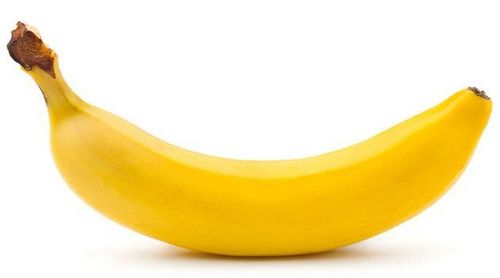
Một quả chuối được sử dụng trong khẩu phần ăn nhẹ
3. Supplement during running
The body's glycogen stores can be depleted in one to two hours after running.
Glycogen is the stored form of glucose, or blood sugar, that the body uses when it needs more energy. So, to refuel and delay fatigue, Users are recommended to eat 30 to 60 grams of carbs per hour 15 to 20 minutes apart during runs lasting more than 90 minutes.
A snack during a run may include:
Sports drinks: These drinks contain electrolytes, which reduce sweat loss and keep a high percentage of carbs for energy recovery Energy gels: As a concentrated source of carbs containing sugar and other ingredients such as electrolytes or caffeine, packaged in small disposable packets Energy bars: These tend to be high in carbs and protein just enough to help muscles Better recovery Other snacks: Dried fruit, honey packs, marshmallows and other candies have the same effect as other restorative foods. Depending on the amount of sweat lost, customers should also drink water during the run, drinking 1 bottle of water between 500 and 1,000 ml per hour. The most important thing is that users should listen to their body to adjust the amount of water and food accordingly.
For example, many people may find that eating white rice instead of baked potatoes before a run makes their stomach easier to digest, or that eating a banana for a pre-run snack doesn't upset their stomach while running but Eat an apple, yes. Therefore, users should not consume strange or suspected foods that cause reactions to avoid reduced running performance.

Bổ sung thực phẩm trước và trong quá trình chạy giúp đạt kết quả cao
Please dial HOTLINE for more information or register for an appointment HERE. Download MyVinmec app to make appointments faster and to manage your bookings easily.
Reference article: Healthline.com



